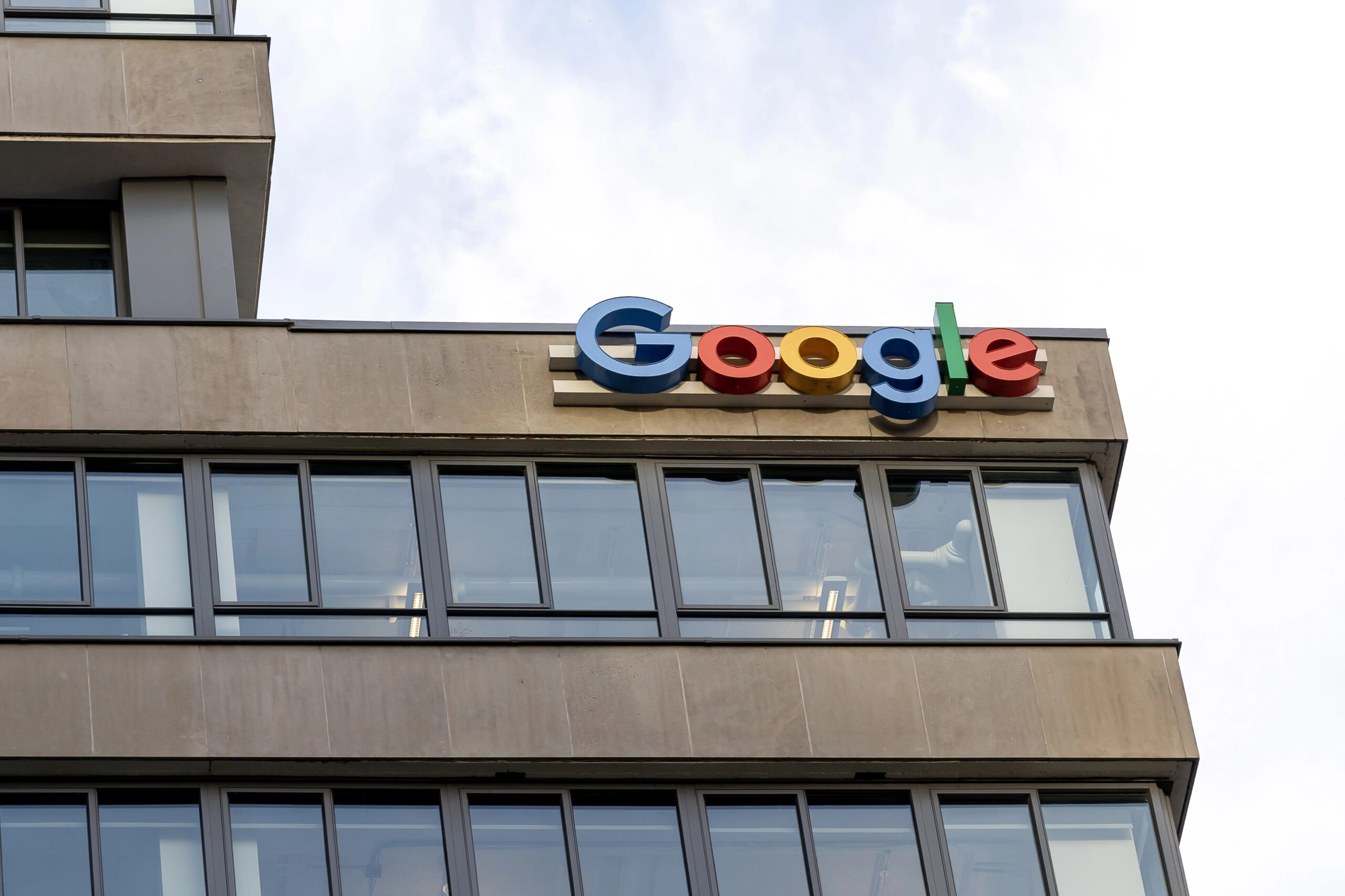As you navigate the digital landscape, your online privacy may be at greater risk than you realize. Google, a tech giant you likely interact with daily, is facing a class-action lawsuit over alleged unauthorized data collection practices. Even if you’ve taken steps to protect your privacy by disabling tracking features on your mobile device, you might still be affected. A federal judge has ruled that Google must stand trial for potentially violating users’ privacy rights and California law. This case highlights the ongoing tension between tech companies’ data collection practices and individuals’ right to privacy in the digital age. Understanding the implications of this lawsuit is crucial for anyone concerned about their online data security.
Google’s Alleged Unauthorized Mobile Data Collection Practices

Google’s data collection practices have come under intense scrutiny, with accusations of unauthorized tracking and storage of users’ personal information. The tech giant now faces a class-action lawsuit that alleges a violation of privacy rights and California law.
The Crux of the Allegations
At the heart of this legal battle is the claim that Google continued to collect and store users’ browsing histories and other data even after they had disabled tracking features on their mobile devices. This practice, if proven true, could be seen as a significant breach of user trust and privacy expectations.
Google’s Defense and Internal Communications
Google has maintained that it adequately informed users about its data collection activities. However, the company’s defense is complicated by internal communications that suggest a deliberate lack of clarity in distinguishing between data collected within and outside of Google accounts. This ambiguity, allegedly intended to avoid alarming users, now forms a crucial part of the lawsuit.
Implications for Tech Industry Privacy Practices
This case adds to the growing wave of scrutiny facing tech companies regarding their data privacy practices. As users become increasingly aware of and concerned about how their personal information is collected and used, this lawsuit’s outcome could have far-reaching implications for the industry.
The Class-Action Lawsuit Against Google
Origins and Allegations
The class-action lawsuit against Google, initiated in July 2020, stems from accusations of unauthorized data collection from users’ mobile devices. You might be surprised to learn that the tech giant allegedly continued gathering personal information even after users disabled tracking features. This lawsuit claims that Google’s actions violate both privacy rights and California law by intercepting and storing users’ browsing histories without their consent.
Google’s Defense and Internal Communications
Google maintains that it adequately informed users about its tracking activities, asserting that the data collection was harmless. However, internal communications paint a different picture. These messages suggest that Google intentionally used vague language when distinguishing between data collected within and outside of Google accounts. You might wonder why they’d do this – apparently, it was to avoid alarming users about the extent of data being gathered.
Legal Proceedings and Implications
Chief Judge Richard Seeborg’s decision to reject Google’s motion to dismiss the case marks a significant development. The judge stated that Google’s disclosures about its data collection practices were ambiguous and could be perceived as “highly offensive” by reasonable users. This ruling sets the stage for a jury trial, scheduled for August 18, 2025. As you follow this case, remember that it’s part of a broader trend of increased scrutiny on tech companies’ data privacy practices, potentially reshaping how your personal information is handled in the digital age.
Google’s Defense and Internal Communications
Google’s Stance on Data Collection
Google has maintained that its data collection practices are both transparent and harmless. The tech giant argues that users are adequately informed about tracking activities through various disclosures and privacy policies. However, the lawsuit challenges this assertion, claiming that Google’s communications regarding data collection are ambiguous and potentially misleading.
Internal Communications Reveal Concerns
Internal documents brought to light during the legal proceedings paint a different picture. These communications suggest that Google may have intentionally used vague language when describing its data collection practices. The company appeared to blur the lines between data collected within Google accounts and information gathered outside of these accounts. This lack of clarity could be interpreted as an attempt to avoid raising red flags among users about the extent of data being collected.
Implications for User Privacy
The revelation of these internal communications raises significant questions about Google’s commitment to user privacy. If the allegations prove true, it could indicate a deliberate strategy to keep users in the dark about the full scope of data collection. This approach not only undermines user trust but also potentially violates privacy laws and ethical standards in data handling. As the case progresses, it will likely shed more light on the balance between user privacy and data-driven business models in the tech industry.
The Growing Scrutiny of Tech Companies’ Data Privacy Practices
Increasing Concerns Over Data Collection
In recent years, the spotlight on tech giants’ data privacy practices has intensified. Users are becoming increasingly aware of the vast amounts of personal information collected by companies like Google, Facebook, and Amazon. This heightened awareness has led to a surge in lawsuits and regulatory actions aimed at protecting consumer privacy rights.
Legal Challenges and Regulatory Pressure
Tech companies are facing a barrage of legal challenges over their data collection practices. The Google case is just one example of the mounting pressure on these firms to be more transparent about how they gather and use personal information. Regulatory bodies worldwide are also tightening data protection laws, with initiatives like the European Union’s General Data Protection Regulation (GDPR) setting new standards for data privacy.
The Impact on User Trust and Industry Practices
As scrutiny increases, tech companies are being forced to reevaluate their approaches to data collection and user privacy. This shift is not only affecting their legal standing but also impacting user trust. Many firms are now implementing more robust privacy controls and clearer disclosure policies to regain consumer confidence and comply with evolving regulations.
The Implications of the Upcoming Google Trial
Potential Precedent for Data Privacy
The upcoming Google trial could set a significant precedent for how tech companies handle user data. If the court rules against Google, it may force not only this tech giant but also other companies to be more transparent about their data collection practices. This case highlights the growing tension between user privacy and the data-driven business models of many tech firms.
Impact on User Trust and Transparency
This trial underscores the importance of clear communication between tech companies and their users.If Google is found to have been intentionally vague about its data collection practices, it could erode user trust in Google and the tech industry. Companies may need to revise their privacy policies and user agreements to be more explicit and user-friendly.
Potential Changes in Data Collection Practices
A ruling against Google could lead to significant changes in how companies collect and use personal data. It may result in stricter regulations or self-imposed limitations on data collection, potentially affecting targeted advertising and other data-driven services. This could have far-reaching implications for the digital economy and how users interact with online services.
Broader Implications for Tech Regulation
This case adds to the growing scrutiny of tech companies’ data practices. It may contribute to calls for more comprehensive privacy legislation and stricter enforcement of existing laws. The outcome could influence future regulatory approaches to data privacy, not just in the U.S., but globally.
Summary of Findings
As you navigate the digital landscape, this case serves as a stark reminder of the ongoing challenges in safeguarding your personal data. Google’s trial underscores the critical need for transparency and user consent in data collection practices. It is imperative that you remain vigilant about your privacy settings and stay informed about how your information is being used. As technology continues to evolve, so too must the legal frameworks that protect your digital rights. This lawsuit may set a precedent for how tech companies handle user data in the future, potentially reshaping the relationship between consumers and digital platforms. Stay tuned for the outcome of this pivotal case, as it could significantly impact your online privacy.
More Stories
Quark’s Deep Search: Alibaba’s AI App Redefines China’s Search Landscape
Alibaba’s Quark AI app is making waves with its groundbreaking “deep search” feature. By harnessing the power of its Qwen AI models, Quark elevates traditional search functions, offering users precise, context-rich answers to intricate questions.
Amazon’s ‘Get Book’ Button Breaks Apple’s Grip on iOS Kindle Purchases
Amazon has introduced a “Get Book” button in its iOS Kindle app, marking a pivotal moment in the ongoing battle over digital purchase control.
Gamuda Powers Malaysia’s Digital Leap with Google’s Data Center Deal
Google has awarded Gamuda Berhad a significant contract to develop a hyperscale data center in Malaysia. This collaboration highlights Google’s investment strategy to strengthen cloud infrastructure and AI capabilities in Southeast Asia.
Spotify Unveils ‘Plays’ Count, Turning Podcasts into a Popularity Contest
Spotify has taken a bold step by unveiling a new “plays” count feature for podcasts, a move that promises to redefine the dynamics of content popularity. This innovation introduces a level of transparency akin to the metrics seen on video platforms, turning podcasting into a competitive arena where every play counts.
Microsoft’s AI-Cloud Synergy: Fueling Unprecedented Growth Under Nadella’s Vision
Microsoft AI and cloud computing alignment under CEO Satya Nadella fuels unprecedented growth, which highlights its commitment to innovation.
India’s Quantum Leap: IBM and TCS Launch Nation’s Largest Quantum Computer at Quantum Valley
IBM and Tata Consultancy Services (TCS) have partnered to install India’s largest quantum computer. This advanced system will be located at the upcoming Quantum Valley Tech Park in Andhra Pradesh.

